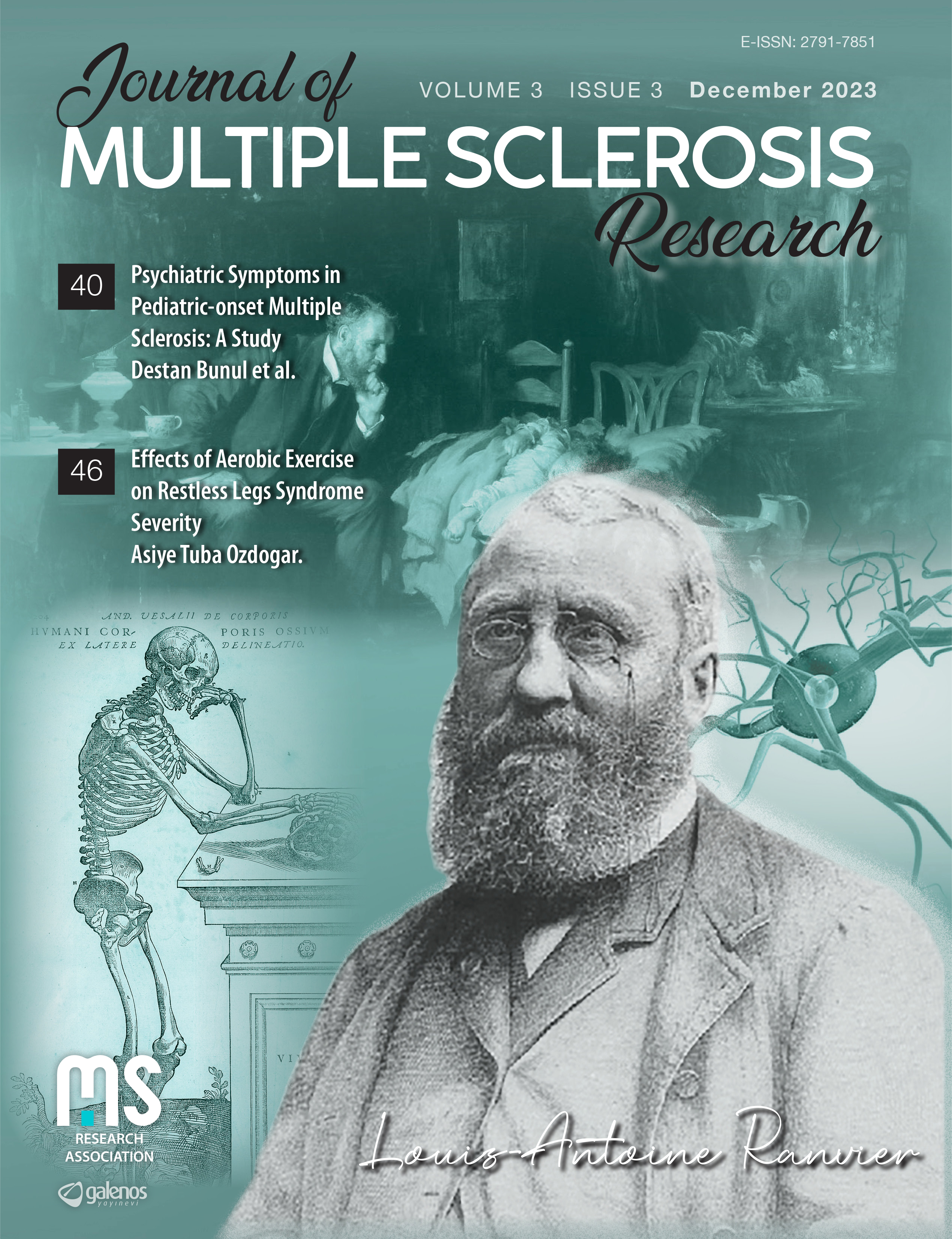Assessing Psychiatric Symptoms in Pediatric Multiple Sclerosis Patients
Sena Destan Bunul1, Gokce Yagmur Efendi2, Ayfer Sakarya Gunes3, Rahime Duygu Temelturk41Kocaeli University Faculty of Medicine, Department of Neurology, Kocaeli, Turkey2Kocaeli University Faculty of Medicine, Department of Child and Adolescent Mental Health and Diseases, Kocaeli, Turkey
3Kocaeli University Faculty of Medicine, Department of Pediatrics, Divisions of Child Neurology, Kocaeli, Turkey
4Ankara University Faculty of Medicine, Department of Child and Adolescent Mental Health and Diseases, Ankara, Turkey
INTRODUCTION: Multiple sclerosis (MS) is an autoimmune disease affecting both adults and children, often accompanied by various psychiatric disorders. Research on psychiatric symptoms in pediatric MS is relatively limited in comparison with adult-onset MS. To evaluate depression and anxiety levels in pediatric MS patients and compare them to healthy controls, and to assess the impact of clinical and sociodemographic variables on these levels.
METHODS: A cross-sectional study was conducted involving 15 pediatric MS patients and 15 age and socioeconomic-matched healthy controls. Anxiety and depression levels were assessed using the State-Trait Anxiety Inventory (STAI) and Childrens Depression Inventory (CDI).
RESULTS: No significant difference was observed between the MS group and controls in terms of CDI scores, STAI state, and anxiety trait scores. Nevertheless, individuals in the MS group exhibited higher levels of trait anxiety. The average disability score among MS participants was low (0.33), potentially explaining the comparable psychiatric symptom levels with the controls. Sociodemographic data revealed a significant difference in fathers education levels between the groups.
DISCUSSION AND CONCLUSION: Depression and anxiety levels in pediatric MS patients were similar to healthy controls, possibly attributed to the low disability levels in the MS group. Extensive research is crucial to understand better psychiatric comorbidities and their correlation with disability progression in pediatric MS.
Corresponding Author: Sena Destan Bunul, Türkiye
Manuscript Language: English













 Copyright © 2024 | Journal of Multiple Sclerosis Research
Copyright © 2024 | Journal of Multiple Sclerosis Research